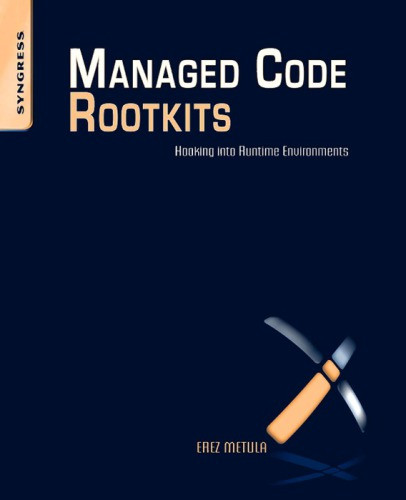

Most ebook files are in PDF format, so you can easily read them using various software such as Foxit Reader or directly on the Google Chrome browser.
Some ebook files are released by publishers in other formats such as .awz, .mobi, .epub, .fb2, etc. You may need to install specific software to read these formats on mobile/PC, such as Calibre.
Please read the tutorial at this link: https://ebookbell.com/faq
We offer FREE conversion to the popular formats you request; however, this may take some time. Therefore, right after payment, please email us, and we will try to provide the service as quickly as possible.
For some exceptional file formats or broken links (if any), please refrain from opening any disputes. Instead, email us first, and we will try to assist within a maximum of 6 hours.
EbookBell Team

4.0
96 reviewsEndnote -- Part IV: Where Do We Go from Here? -- Chapter 10. Other Uses of Runtime Modification -- Runtime Modification As an Alternative Problem-Solving Approach -- Runtime Hardening -- Summary -- Index.
Managed Code Rootkits is the first book to cover application-level rootkits and other types of malware inside the application VM, which runs a platform-independent programming environment for processes. The book, divided into four parts, points out high-level attacks, which are developed in intermediate language. The initial part of the book offers an overview of managed code rootkits. It explores environment models of managed code and the relationship of managed code to rootkits by studying how they use application VMs. It also discusses attackers of managed code rootkits and various attack scenarios. The second part of the book covers the development of managed code rootkits, starting with the tools used in producing managed code rootkits through their deployment. The next part focuses on countermeasures that can possibly be used against managed code rootkits, including technical solutions, prevention, detection, and response tactics. The book concludes by presenting techniques that are somehow similar to managed code rootkits, which can be used in solving problems. Named a 2011 Best Hacking and Pen Testing Book by InfoSec ReviewsIntroduces the reader briefly to managed code environments and rootkits in generalCompletely details a new type of rootkit hiding in the application level and demonstrates how a hacker can change language runtime implementationFocuses on managed code including Java, .NET, Android Dalvik and reviews malware development scanarios.
Abstract: Endnote -- Chapter 7. Automated Framework Modification -- What is ReFrameworker? -- ReFrameworker Modules Concept -- Using the Tool -- Developing New Modules -- Setting Up the Tool -- Summary -- Chapter 8. Advanced Topics -- "Object-Oriented-Aware " Malware -- Thread Injection -- State Manipulation -- Covering the Traces As Native Code -- Summary -- Part III: Countermeasures -- Chapter 9. Defending against MCRs -- What Can We Do about This Kind of Threat? -- Awareness: Malware Is Everybody's Problem -- The Prevention Approach -- The Detection Approach -- The Response Approach.
Endnote -- Part IV: Where Do We Go from Here? -- Chapter 10. Other Uses of Runtime Modification -- Runtime Modification As an Alternative Problem-Solving Approach -- Runtime Hardening -- Summary -- Index.
Managed Code Rootkits is the first book to cover application-level rootkits and other types of malware inside the application VM, which runs a platform-independent programming environment for processes. The book, divided into four parts, points out high-level attacks, which are developed in intermediate language. The initial part of the book offers an overview of managed code rootkits. It explores environment models of managed code and the relationship of managed code to rootkits by studying how they use application VMs. It also discusses attackers of managed code rootkits and various attack scenarios. The second part of the book covers the development of managed code rootkits, starting with the tools used in producing managed code rootkits through their deployment. The next part focuses on countermeasures that can possibly be used against managed code rootkits, including technical solutions, prevention, detection, and response tactics. The book concludes by presenting techniques that are somehow similar to managed code rootkits, which can be used in solving problems. Named a 2011 Best Hacking and Pen Testing Book by InfoSec ReviewsIntroduces the reader briefly to managed code environments and rootkits in generalCompletely details a new type of rootkit hiding in the application level and demonstrates how a hacker can change language runtime implementationFocuses on managed code including Java, .NET, Android Dalvik and reviews malware development scanarios